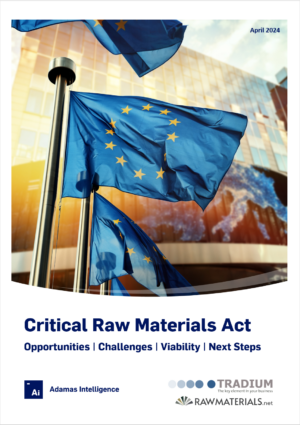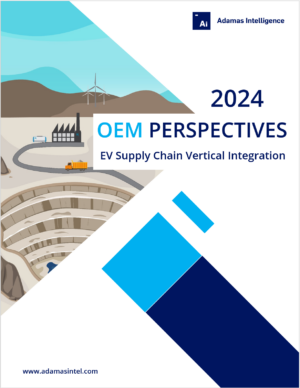ENAMI attracts 30 technology providers within Alto Andino process

Eramet active
Last month, Chilean state-owned company ENAMI announced a list of companies who have entered the Request for Information (“RFI”) stage for its Alto Andina project which encompasses the La Isla, Aguilar, Grande and Infieles salars of the Atacama region of Chile.
The list includes several prominent companies active in both Chilean and Argentinian DLE landscapes, including Rio Tinto, Eramet and LG Energy Solutions. ENAMI will review technical proposals before selecting roughly 5 technologies which will proceed to laboratory testing on the project’s brine.
In March, Chile’s government defined the RFI private-public partnering process as part of the National Lithium Strategy which outlined the subject Alto Andinos as resources to be co-developed with the state, but without a minimum state ownership.
ENAMI has been sampling at Aguilar and La Isla recently and expects to complete a bankable MRE by November 2024. Historic sampling suggests Aguilar and La Isla contained grades as high as 1,078 mg/L and 814 mg/L Li, respectively.
Initial resource delineation, together with a pending application for a CEOL (mining permit), will form ENAMI’s primary contribution towards any partnership.
France’s Eramet is already active in the area. In December 2023, Eramet procured 8,800 ha and 16,500 ha of Aguilar and La Isla, respectively. In March 2024, Eramet also signed a farm-in agreement with Lithium Chile for landholdings that included the 1,078 ha Aguilar property. Eramet are nearing completion of the Centenario project, which deploys proprietary absorption-DLE technology.

Adamas take:
Since the “strategic” salars of Atacama and Maricunga were locked up for majority state ownership, the Alto Andinos salars appear to host the country’s most prospective lithium resources which are open for business.
Fittingly, ENAMI has seen a high level of interest from potential partners offering a wide variety of financial and technical capabilities. This will be extremely encouraging to Chilean policymakers pursuing the private-public partnership model.
Chile desires to have three or four new lithium projects operational by 2026, but it also hopes to increase state ownership across the sector. Besides the timeline being unrealistic, authorities must tread a fine line between give and take since the state does not have the necessary technology or skillset to extract and process lithium into chemicals.
We see the participants with proven technical prowess in DLE, such as Eramet and SunResin, as having strong negotiating power in these discussions. At the other end of the spectrum, emergent DLE technology providers, perhaps capital constrained, may be less demanding of ownership rights, offering an attractive albeit technically riskier proposition for the state.
Image: ENAMI at Aguilar
[Extract from the May issue of the EV Battery Lithium Monthly service.]
Chris Williams, Analyst at Adamas Intelligence
Chris is an Analyst at Adamas Intelligence focused on the global lithium industry. He researches and analyzes the lithium value chain to uncover actionable opportunities for clients.
Chris has 11-years experience in mining and oil & gas operations optimization, delivering value from data intensive insight generation. He completed his Bachelor and Masters of Engineering at the University of Queensland, majoring in Mechanical Engineering, and is currently completing a Masters of Business Administration at the University of British Columbia.
EV, Battery and Battery Materials Market Intelligence:
EV Battery Lithium Monthly
The ‘EV Battery Lithium Monthly’ is a subscription-based report and data service for tracking end-to-end, market-moving developments across the global EV, battery and lithium supply chain.
EV Battery Capacity and Battery Metals Tracker
Building on ongoing EV registrations in over 110 countries, our web-based platform helps users track monthly deployment of battery metals and materials, battery capacity, and the ever-evolving competitive landscapes of battery chemistries and cell suppliers.
EV Battery Capacity Monthly
The ‘EV Battery Capacity Monthly’ is a subscription-based report for tracking monthly deployment of passenger EV battery capacity by EV type, region, country, make, model, cell supplier and cell chemistry on an ongoing basis.






